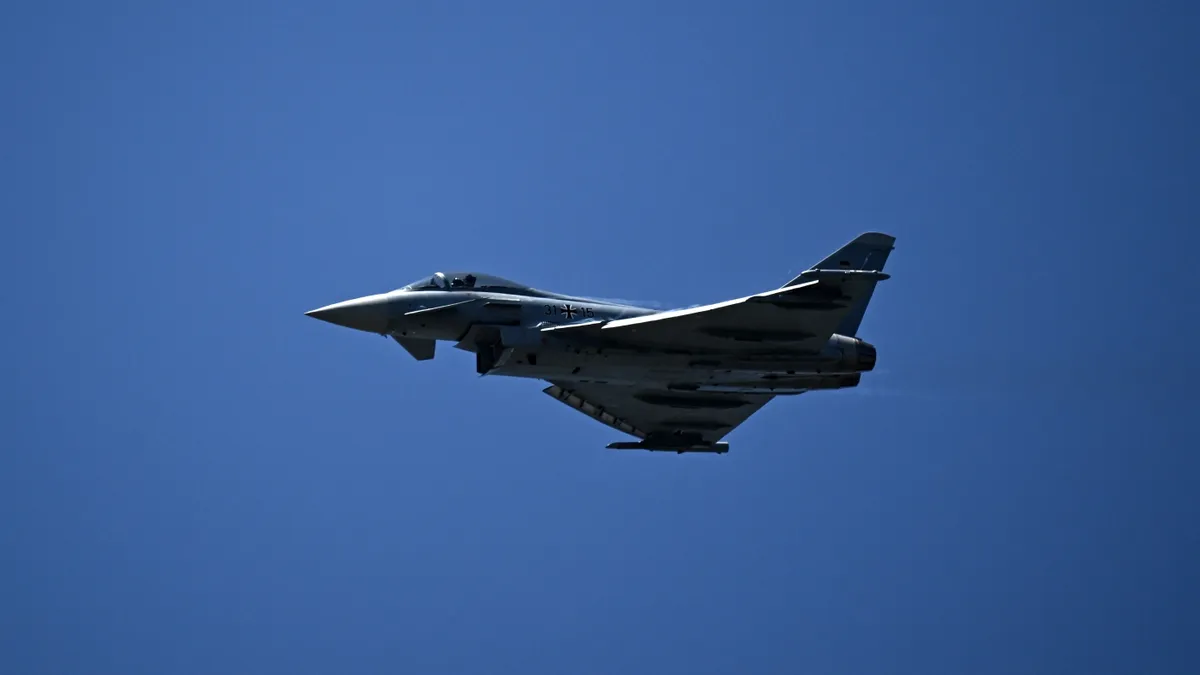
On a tense Sunday morning, officials from Germany and Sweden confirmed that fighter jets were scrambled to intercept a Russian reconnaissance plane that had entered neutral airspace over the Baltic Sea. This incident underscores the ongoing military tensions in the region and highlights the vigilant response of NATO allies.
The situation unfolded when German officials reported that NATO had ordered Germany's quick reaction alert force to investigate an unidentified aircraft that was flying without a flight plan or radio contact. Upon further investigation, the aircraft was identified as a Russian IL-20M reconnaissance plane. Following a visual confirmation, the Bundeswehr, Germany's military, handed over the responsibility of escorting the aircraft to their Swedish NATO partners and returned to their base in Rostock-Laage, according to a statement from Germany's delegation to NATO.
In a parallel response, the Swedish Air Force confirmed that its fighters were actively identifying and monitoring the Russian IL-20 reconnaissance aircraft in international airspace. This incident is the latest in a series of provocations by Russian military aircraft, which have increasingly entered NATO airspace, raising concerns among member states.
The interception of the Russian reconnaissance plane comes on the heels of several other incidents that have escalated tensions between NATO and Russia. Just days prior, Estonia reported that three Russian MiG-31 fighter jets had entered its airspace without authorization, remaining there for a total of 12 minutes. In response, Estonian Prime Minister Kristen Michal invoked NATO's Article 4, a provision that allows member states to consult with the alliance when they feel threatened.
In a show of diplomatic protest, Estonia summoned Moscow's charge d'affaires, yet Russia's Ministry of Defense denied any claims of violating Estonian airspace. This denial was met with skepticism, particularly after President Trump commented on the incident, stating, "Well, I don't love it. I don't love it when that happens. Could be big trouble."
The situation escalated further when Poland triggered NATO's Article 4 after more than a dozen Russian drones were detected in Polish airspace on September 10, leading to the downing of several of these drones. Polish Prime Minister Donald Tusk described the event as the "closest we have been to open conflict since World War II." Additionally, Romania reported a Russian drone breach on September 14, which Russia claimed was a provocation by Ukraine without presenting any evidence.
Estonia's Minister of Defense, Hanno Pevkur, addressed the situation in an interview with the public broadcaster ERR. He emphasized that NATO has demonstrated its capability to respond effectively to Russian violations, stating, "This is exactly what Russia wants — to divert our attention away from helping Ukraine and focus on our own backyard." He elaborated on the strategic aims of Russia, suggesting that such provocations are designed to distract the West while Russia pursues its interests in Ukraine.
This incident and the broader series of airspace incursions highlight the fragile security dynamics in Europe and the critical role of NATO in maintaining peace and stability in the face of provocations.